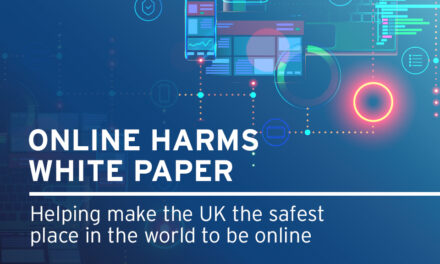The information landscape
If the Coronavirus pandemic has taught us anything, it is that online misinformation creates offline harms.
Senseless witch hunts against telecoms engineers and anti-mask protests are behaviours that should be more at home in 17th century Salem, Massachusetts than the present day.
During the 2020 “infodemic”, bad actors abroad and at home have weaponised disinformation to undermine trust in our public institutions on a scale never seen before. In the first week of April, Ofcom found that close to half of UK “online adults” had come across “false or misleading information about coronavirus (Covid-19).”
The impact of misinformation is being felt in the private sector too. Last month, the Financial Times reported that HSBC “became the latest bank to sign up to a biometric identification system” to combat the threat of ‘deepfakes’, AI-manipulated videos being used to impersonate clients.
While the majority of misinformation comes from the general public, recent research by the Reuters Institute for the Study of Journalism found that posts containing false information from politicians and celebrities across the globe are responsible for 69 per cent of social media engagement.
Practical action
To give young people and wider society a fighting chance to navigate this challenging reality, we must provide them with the critical thinking tools they need to distinguish fact from fiction.
Currently, 98 per cent of children cannot tell the difference between a real and false news story. Schools are a key strategic defence in the 21st century’s online information war. The Cairncross Review recommended in February 2019 that the government should develop a media literacy strategy, working with Ofcom and other key stakeholders to identify gaps in provision and opportunities for more collaborative working.
We must go further than this. Right now schools are vulnerable to localised closures and teachers are tasked with helping children catch up having missed around half of the last academic year as well as trying to close an attainment gap that had stopped closing before the lockdown.
Our work https://www.youtube.com/embed/rR0W9GRheCw?feature=emb_title&wmode=opaque&enablejsapi=1
Young people from all backgrounds should be given a chance to critically evaluate information online. As a secondary school teacher, I founded The Student View in 2016, a charity working with Google, the Financial Times and ITN, which trains underserved teenagers as local news reporters in 20 towns and cities across the UK. Since its launch, we have trained over 1,400 young people and we have published more than 220 UK local news investigations from our 101 school newsrooms.
Policy recommendations
Schools must be allowed to carve out time to equip their pupils with digital literacy skills. Embedding a weekly Media Literacy Minute time slot in the curriculum could provide teachers with the time to pause, reflect, learn and upskill schoolchildren with the latest tools. This could take place during a tutor group session. To ‘level up’ digital skills education in the UK, we recommend the government ensuresmedia literacy training is a must have for England’s schoolchildren and teachers in the proposed Online Harms Bill.
We want all schoolchildren to have the same opportunities as the participants of our workshops by making media literacy a ‘core’ compulsory subject within the national curriculum.
Media literacy does seep into some core subjects. In Citizenship, pupils explore the role of a free press and thecomputing curriculum teaches practical digital safety skills.
This is a good start.
Media literacy must become an EBacc subject alongside English language and literature, maths, the sciences, geography, history and languages.
Uptake of optional Media, film and TV GCSEs fell by 12 per cent in 2019. Learning how to navigate the digital world should not have to be a choice for a fourteen-year-old but should be valued as an essential skill for all, for life.
If our work was replicated across the country, we are confident that the government’s goal to make the UK the safest space online could be achieved.
Solomon Elliott is the Founder and Chief Executive of The Student View





